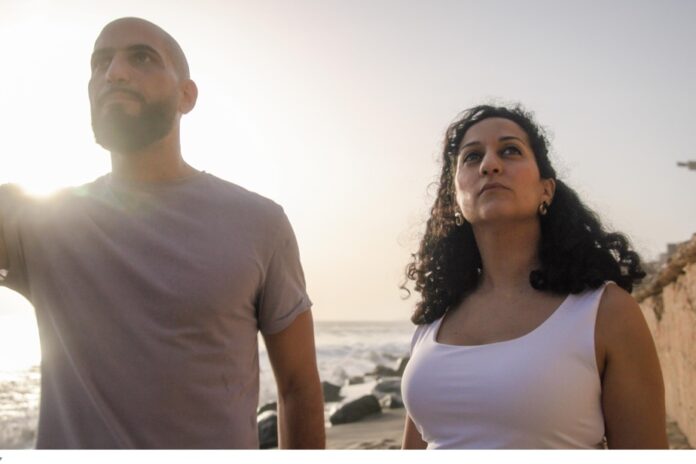A decade after her brother Youssef left to join ISIS in Syria motivated by his faith, Leïla Sakhir goes out of her way to ensure that her niece can be taken care of by a family member. And hope to finally turn the page on a “horror” that has been dragging on for 10 years.
Goodbye ISIS? is the third part of a series begun in 2017 with T’es où Youssef?, in which journalist and columnist Raed Hammoud tried to understand what had pushed a college friend to join the ranks of the Islamic State armed group in Syria. He is not the only one: Youssef’s sister, Leïla, is still trying to understand, too, how her brother could have made such a gesture.
She is the central character of the surprising documentary directed by Marc Lamy (with Gabriel Allard-Gagnon) and scripted by Mathieu Paiement. Surprising, because by going in search of answers, Leïla finds some that she did not expect. What if his brother had been motivated by his idealism rather than radicalized by hateful and vengeful speech?
Leïla has been struggling for four years now to find a way to get the little one out of there, with her mother if possible. “I want to close this book,” she said. Further on, she adds, about her brother: “Somewhere, I’m trying to repair his damage. I’m trying to limit his damage. »
By continuing to dig into this story also covered in The Dust of Daesh, Leïla and Raed end up talking to another old friend of Youssef, Hassan Kamar. He also planned to leave Sherbrooke to go to Syria. Except that when his big brother realized that he was being radicalized, his family mobilized and his mother forcibly brought him back to Senegal, his native country. She even reported him to the authorities.
Hassan was accused of wanting to join the ranks of the terrorist organization, but also of participating in its financing and other things. He says all the charges were dropped, but he still spent about three years in prison at home. Two years later, he is a father. He keeps his faith, but he is “rehabilitated” in Raed’s eyes.
This young man was very close to Youssef, he explains. And the portrait he paints of his friend is both close to what Raed and Leïla experienced, but neither expected Hassan to give an explanation about leaving for Syria. . “We were driven by the desire to become scholars of Islam,” he explains, adding that he and Youssef saw distress in the videos circulating on the Internet and first wanted to help by going there. -down, notably by opening an orphanage.
Most often, they are described as young men who have lost their way by adhering to the values of Europe or America and who give meaning to their lives by reconnecting with a religion which occupies a large place in their identity, but in a radical and violent version.
This passage is the most confronting, as much for the two characters in the documentary as for the viewers. However, it sheds a different light on a clash of civilizations which destroyed many lives. And whose tremors are still being felt: there are still, according to documentarians, 68,000 suspected members of Daesh and their families in camps or prisons in Syria. A little less than half are children. Of the number, 25 are Canadian, including 1 teenager and 16 children.
The broadcast of Farewell Daesh? will be followed by a special program hosted by Marie-Louise Arsenault entitled Adieu Daech? : the discussion, in which Raed Hammoud, Stéphane Bergeron, of the Bloc Québécois, the former Minister of Justice of France Christiane Taubira and the specialists in radicalization and the prevention of violent extremism David Morin and Ghayda Hassan will participate.















